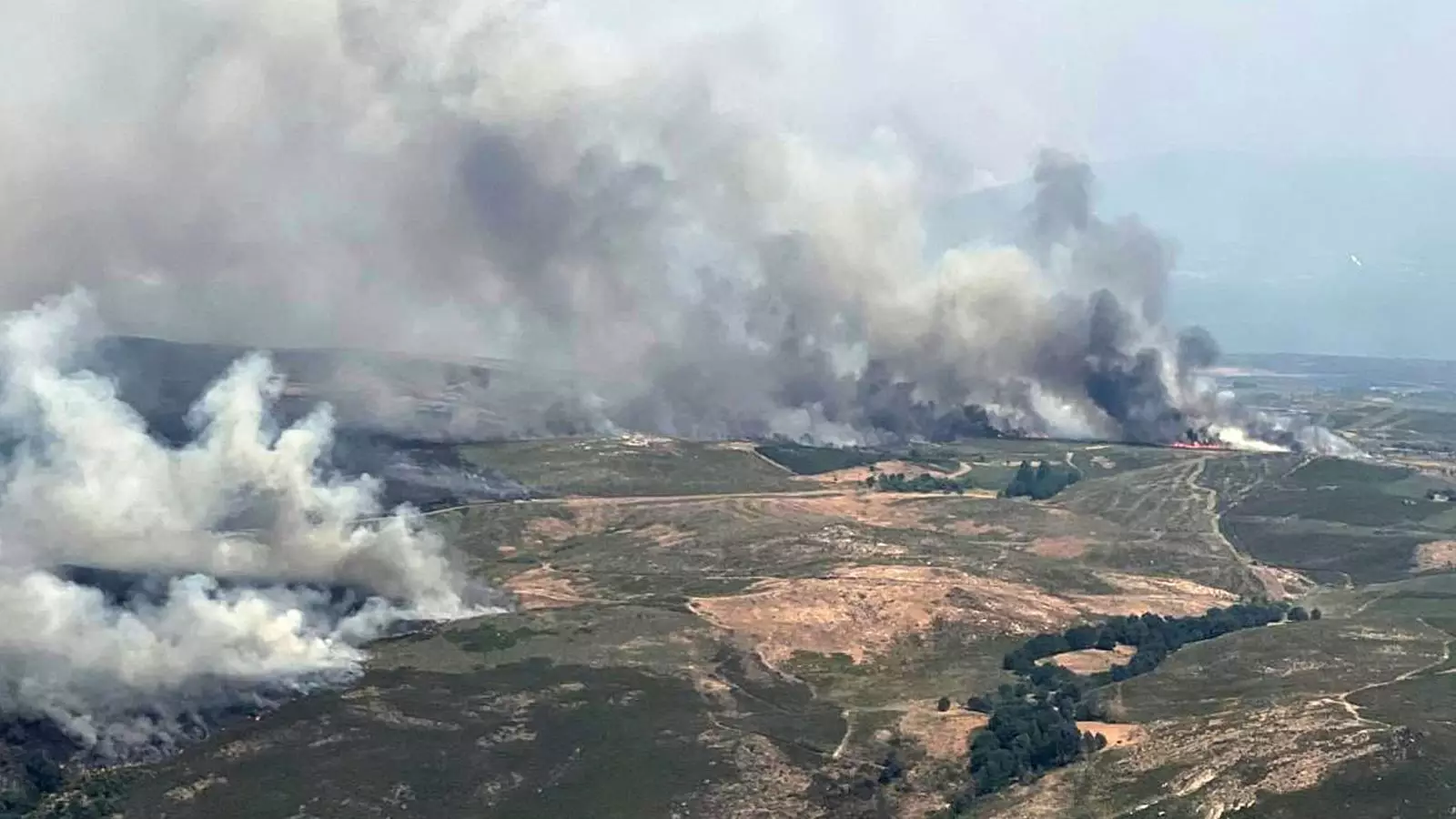The recent surge of haze drifting across the UK from devastating wildfires in Spain and Portugal is more than just an ecological nuisance—it is a stark indicator of our rapidly changing climate. While many might dismiss these smoky curtains as temporary or aesthetically interesting with their enhanced sunsets, the reality runs far deeper. Behind the vivid reds and oranges of dawn and dusk lies a troubling sign of environmental imbalance—a signal that our climate is tipping towards more frequent and ferocious extremes. It is imperative that we recognize this phenomenon as a symptom of systemic failure rather than mere coincidence, demanding urgent reflection on our collective responsibilities and actions.
Wildfires as a Symptom, Not Just a Crisis
The ferocity of this year’s wildfires, fueled by relentless droughts and soaring temperatures, exposes the vulnerability of southern Europe and beyond. The destruction of vast lands, with some areas comparable in size to London razed to the ground, should serve as an alarm bell. These fires are not isolated incidents but part of a disturbing pattern—more intense, prolonged, and difficult to contain—driven largely by human contributions to global warming. While natural factors such as dry seasons and winds play a role, the overarching escalation is accelerated by the greenhouse gases we habitually emit, trapping heat and creating a feedback loop that exacerbates these disasters. Dismissing this as an environmental issue limited to peripheral regions is naive; the smoke that reaches the UK is a visceral reminder that climate change affects us all, across borders and boundaries.
The Illusion of Beauty and the Reality of Consequences
The spectacle of vibrant sunsets and hazy horizons often distracts us from the profound consequences underlying these natural phenomena. To many, the deep reds and oranges may seem poetic, but they conceal the chaos that fuels them. The scattering of light—both Rayleigh and Mie—creates breathtaking visuals but also serves as a metaphor for the deception at the heart of climate discourse. We are seduced by the aesthetic while ignoring the suffering beyond the horizon—wildlife displaced, communities threatened, forests lost, and human lives disrupted. Echoing that allure, our acknowledgment of climate peril often remains superficial, bypassing the urgent necessity for systemic change. We have become spectators of catastrophe, watching as the sky betrays the environmental toll that relentless human activity has wrought.
The Political and Social Dimensions of a Worsening Crisis
Ignoring the interconnectedness of climate distress fosters a dangerous complacency rooted in short-term political gains. The images of smoke-laden skies should spark more than passive concern—they should ignite a reckoning with policies that prioritize fossil fuel interests over planetary health. Within the center-wing liberal spectrum, it is vital to advocate for pragmatic, yet ambitious, policy shifts that balance economic growth with environmental stewardship. The ongoing wildfires serve as a harsh reminder that climate change is not merely a distant threat but a present reality damaging lives and ecosystems. Our response must be rooted in accountability—demanding resilience, sustainable investments, and equitable solutions. Denial or complacency will only deepen the scars on our environment and exacerbate social inequalities, as vulnerable populations suffer disproportionate harm.
Facing the Future with Courage and Responsibility
The haze may linger for days, and the temperatures may fluctuate, but the overarching lesson remains clear: the Earth’s climate system is struggling under the weight of our collective negligence. As individuals, communities, and governments, it is crucial that we transcend apathy and confront the challenge head-on. This is not a matter of environmental enthusiasts versus skeptics; it is a moral imperative for a responsible society. We owe it to future generations to act decisively, reducing reliance on fossil fuels, investing in renewable energies, and fostering resilience against inevitable changes. Only through honest reflection and unwavering commitment can we hope to prevent further devastation—both seen in the smoky skies and felt in the fractures of our social fabric.


Leave a Reply